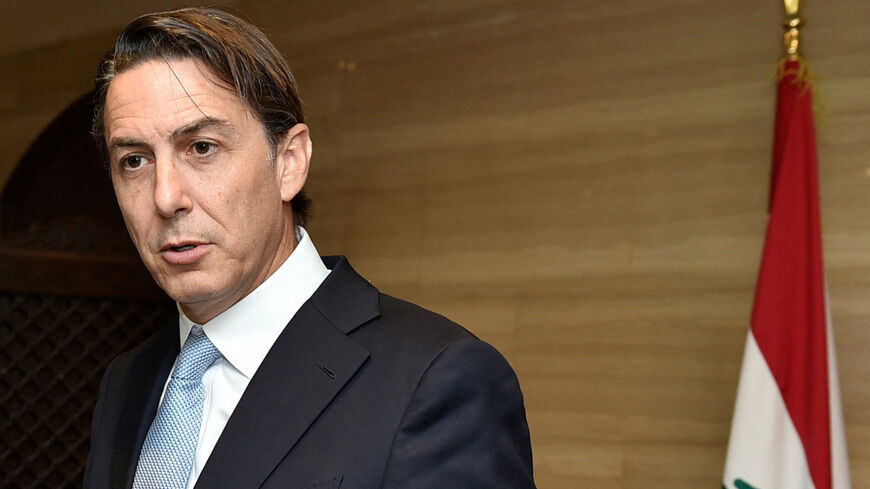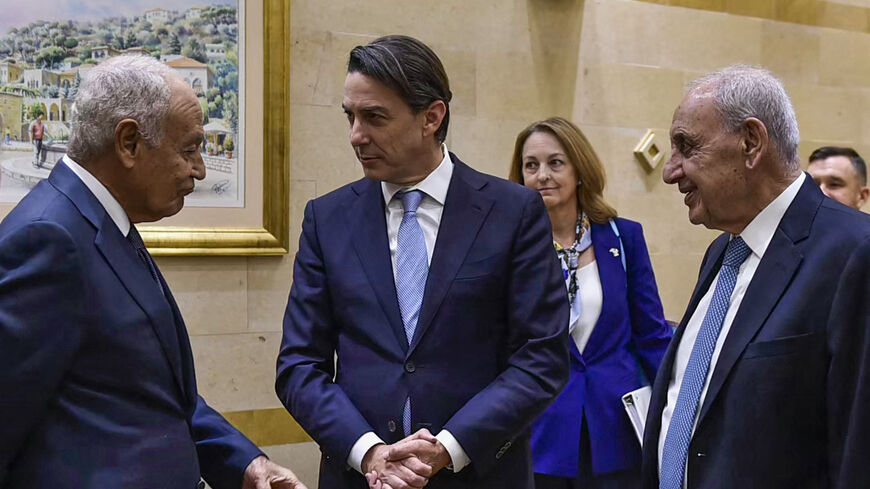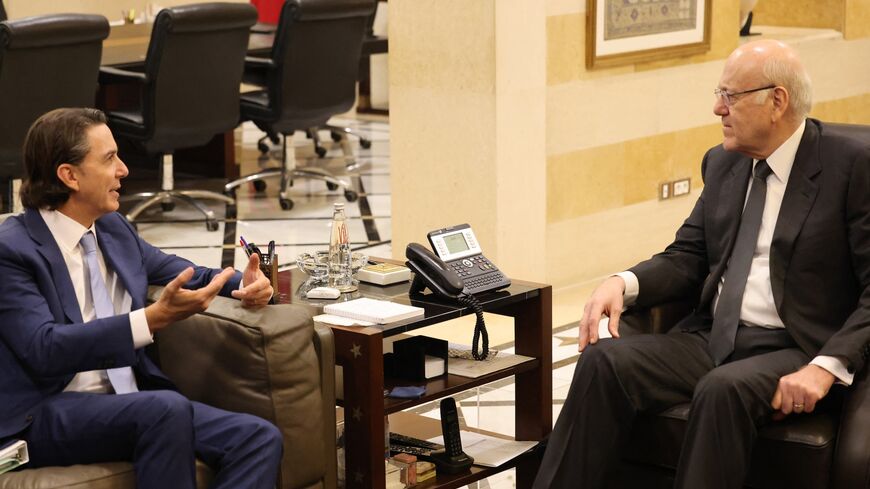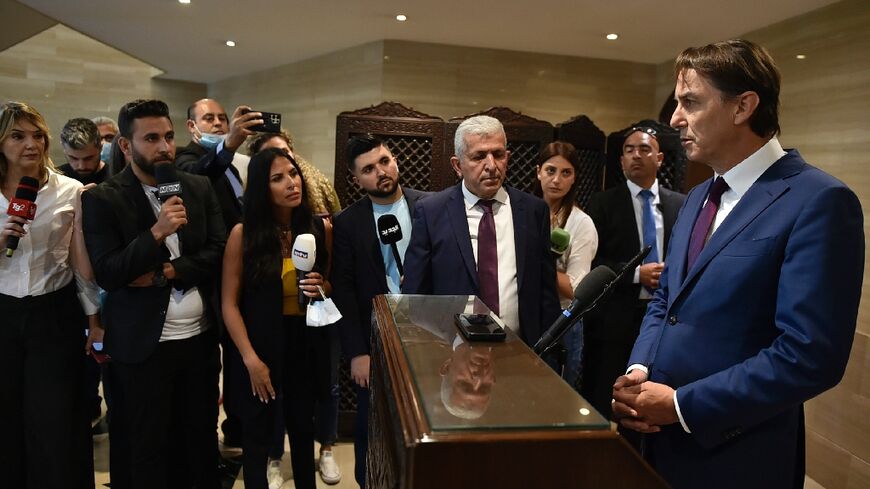In Lebanon, Hochstein calls for 'urgent' end to Israel-Hezbollah escalation
US special envoy Amos Hochstein met with the army commander and other top officials in Beirut to discuss the cross-border escalation between Israel and Hezbollah, one day after his trip to Israel.

BEIRUT — US special envoy Amos Hochstein arrived in Beirut on Tuesday after visiting Israel a day earlier, as part of US efforts to de-escalate the situation along the Lebanon-Israel border where intense fire exchanges between Hezbollah and the Israeli army are threatening to spill into a wider war.
At the start of his visit to Beirut, Hochstein met with the commander of the Lebanese army, Joseph Aoun, in the presence of US Ambassador to Lebanon Lisa Johnson. The discussions focused on the latest developments in the region and on Lebanon’s southern border with Israel, the army said in a brief statement.
Aoun was in Washington last week where he met with senior Biden administration officials and congressional lawmakers. The army chief is seeking further US funding and material support for the Lebanese military.
Hochstein later held talks with parliament Speaker Nabih Berri on the situation on the Lebanese-Israeli border. Speaking to reporters following the meeting, Hochstein called for the need to end the escalation on the border.
The conflict along the Lebanon-Israel border "has gone on for long enough," he said. "It’s in everyone’s interest to resolve it quickly and diplomatically. That is both achievable, and it is urgent."
Hochstein also met with Lebanon’s caretaker Prime Minister Najib Mikati. According to the official National News Agency, Mikati stressed during the meeting that his country does not seek escalation on the border, calling for an end to the “ongoing Israeli aggression on Lebanon and the return of calm and stability on the southern border.”
“The ongoing Israeli threats to Lebanon will not prevent us from seeking to establish calm, which is a priority for us and for all of Lebanon's friends,” he added.
For his part, Hochstein reiterated his warnings that the region is “going through dangerous times and critical moments.”
“We are working together to try to find ways to reach a place where we prevent further escalation,” he told reporters in a brief statement following the meeting.
The United States is scrambling to reach an agreement between Israel and Lebanon, which would involve Hezbollah’s withdrawal from the border area and repositioning beyond the Litani River, some 30 kilometers (20 miles) north of the border with Israel. Hezbollah has refused this option and insists its fight against Israel will continue until a cease-fire is implemented in the Gaza Strip.
Hochstein is leading indirect talks with Hezbollah via Berri, an ally of the Iran-backed group, The Wall Street Journal reported on Monday.
Hezbollah and the Israeli army have been engaged in heavy cross-border fire since the war in Gaza erupted last October, the deadliest since the two last fought a war in July 2006. The fighting has escalated in recent weeks, amid growing threats from Israeli officials to launch a wide-scale war on the Lebanese front.
On Tuesday, Hezbollah released footage it claimed was from one of its drones flying over Israel, including the Haifa port. The Israeli military did not comment on the video.
“Hezbollah’s increasing aggression is bringing us to the brink of what could be a wider escalation, one that could have devastating consequences for Lebanon and the entire region,” Israeli army spokesperson Daniel Hagari said in a video statement on Monday.
After a two-day lull in the fighting over the weekend coinciding with the Eid al-Adha holiday, the Israeli military resumed its strikes on southern Lebanon on Monday, killing a senior Hezbollah operative. The army identified him as Mohammad Mustafa Ayoub, from the group's rocket and missile department in the Selaa area, Tyre district.
Hezbollah confirmed the death of Ayoub.
Hochstein met with Prime Minister Benjamin Netanyahu and Defense Minister Yoav Gallant and other officials in Israel on Monday, to discuss the latest developments on the northern front. Details of the discussions were not made public.
He also held a meeting with Israeli President Isaac Herzog, during which the two discussed “the urgent need to restore security to the northern border and the residents to their homes,” according to a statement from the president’s office.





